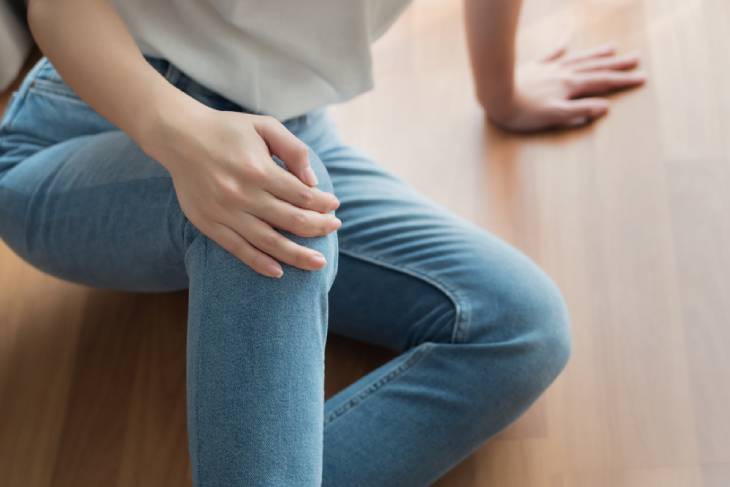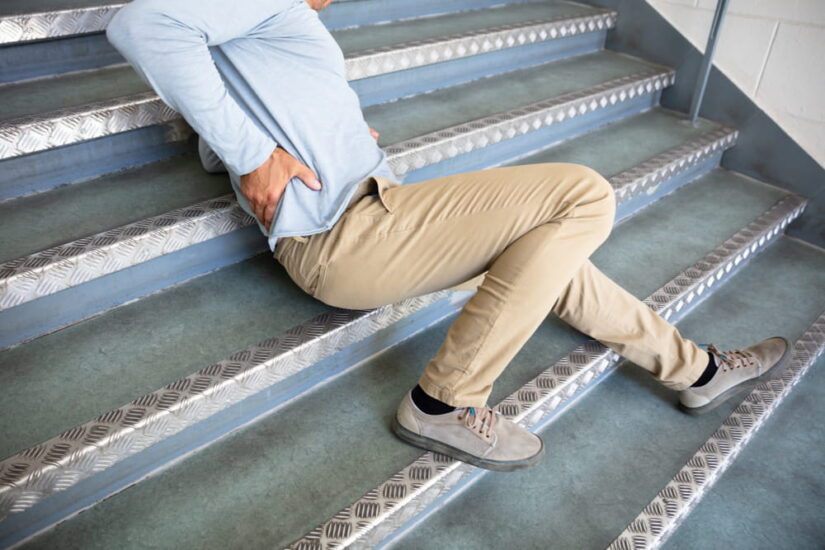
Falls can happen to anyone at any time, leading to serious injuries or even death. Whether it’s a slip and fall on a wet floor in a department store or a severe fall from a broken staircase in a commercial building, identifying the symptoms that may arise after a fall is vital for proper medical treatment and recovery.
While some post-fall symptoms may appear immediately, others may not surface until hours, days, or weeks later. You should seek legal help after a slip and fall accident as soon as possible to recover compensation for your injuries and losses.
Physical Symptoms to Watch Out For
Head Injuries
Head injuries, including concussions and traumatic brain injury, are among the most serious fall-related injuries. Symptoms may include:
- Confusion: Difficulty understanding your surroundings or grasping recent events
- Dizziness or balance issues: Feelings of lightheadedness, spinning sensations, or unsteadiness
- Memory problems: Trouble recalling the events leading up to or following the fall, which can be indicative of cognitive impairment
- Headaches: Persistent or worsening headaches that may be indicative of increased intracranial pressure
- Sensitivity to light and noise: Heightened discomfort in bright environments or with loud sounds
- Visual disturbances: Blurred vision or difficulty focusing can also indicate a concussion
Neck and Back Pain
The intensity and nature of back and neck pain can help in detecting fall injuries. Seek medical attention promptly if you notice any of these symptoms:
- Radiating pain: Pain that travels down the arms or legs may suggest nerve compression or spinal cord injuries
- Stiffness: Limited mobility or difficulty moving the neck or back can indicate severe injury or strain
- Weakness: Muscle weakness or numbness in the extremities can signify potential spinal cord damage
- Localized tenderness: Sensitivity in specific areas can indicate fractures, broken bones, or sprains
- Loss of bowel or bladder control: This alarming symptom may indicate serious spinal injuries and requires immediate medical attention
Bruising and Swelling
Bruising and swelling may occur even after seemingly minor injuries, such as soft tissue injuries. Symptoms and signs to watch out for after a fall include:
- Color changes: Dark purple bruises can indicate deeper tissue damage or internal bleeding.
- Increased swelling: If swelling worsens over time or spreads, it may indicate a more serious injury, such as a fracture.
- Tenderness: Chronic pain or severe pain in a specific area can suggest fractures, contusions, or internal injuries.
- Heat: Swelling accompanied by warmth may indicate an inflammatory response or infection.
- Formation of lumps: Hard or swollen areas could indicate hematomas, broken blood vessels, or more severe injuries.
Neurological Symptoms to Watch Out For
Numbness and Tingling in Limbs
Numbness and tingling sensations in the arms or legs can indicate nerve damage or compression resulting from fall accidents.
- Herniated discs: Compression of spinal nerves due to displaced discs can lead to these sensations.
- Peripheral neuropathy: Damage to peripheral nerves can result in altered sensations, affecting motor control.
- Radiculopathy: Pain or numbness along the path of a nerve due to a pinched nerve root in the spine.
- Weakness in extremities: Reduced strength in the arms or legs can indicate significant nerve damage.
Loss of Balance and Coordination Issues
If you experience ongoing balance or coordination issues, this may indicate vestibular dysfunction or neurological injury symptoms after a fall.
- Frequent stumbling or falling: Indicating a significant loss of proprioception or coordination, which may be linked to neurological issues
- Difficulty walking: Problems maintaining a straight path, feeling unsteady, or using assistance devices, which may suggest an underlying issue
- Shakiness or tremors: Involuntary shaking, which can signify neurological damage or vestibular dysfunction.
- Difficulty in standing still: Struggling to maintain a stable position, indicating balance issues related to inner ear or brain injuries

Emotional and Cognitive Signs and Symptoms
Changes in Mood or Behavior
Emotional and behavioral changes can arise after a head injury or other serious fall injuries. Signs to watch for after a fall include:
- Increased irritability or sadness: Emotional responses that deviate from typical behavior can indicate cognitive impairment.
- Withdrawal from social interactions: Loss of interest in activities or relationships may signal psychological trauma.
- Mood swings: Unpredictable shifts in emotional state can arise from head injuries affecting the brain’s emotional regulation.
- Loss of motivation: A significant decrease in interest or drive can be indicative of mood disorders related to cognitive injuries.
Memory Loss and Difficulty Concentrating
Cognitive symptoms, particularly memory issues, can arise from concussions or traumatic brain injuries. Key symptoms to monitor include:
- Short-term memory problems: Difficulty remembering recent events or conversations may indicate memory impairment.
- Struggling to focus: Trouble concentrating on tasks, processing information, or maintaining attention may suggest cognitive dysfunction.
- Inability to multitask: Difficulty managing multiple tasks or prioritizing can indicate impaired cognitive functioning.
- Disorientation: Feeling lost or confused about time, place, or events can signal serious cognitive impairment.
Steps to Take After Identifying Symptoms
When and How to Seek Medical Treatment
If you notice any concerning symptoms after a fall injury, be prepared to seek medical assistance as soon as possible. Follow these steps:
- Seek Medical Attention Immediately: Schedule an appointment with your doctor or go to the emergency room if symptoms are severe.
- Be Upfront About Your Symptoms: Provide clear and detailed information about what happened and how you feel.
Documenting Symptoms and Medical Visits
Keeping thorough records of your symptoms and medical visits is essential for treatment and potential legal claims. Here’s how to document effectively:
- Maintain a symptom diary: Write down your symptoms daily, noting any changes in severity or new issues that arise.
- Keep medical records: Retain copies of doctor’s notes, diagnostic tests, and treatment plans to provide a comprehensive overview of your condition.
Choose Our Experienced Slip and Fall Accident Lawyers in Southern California
If you’ve suffered injuries due to a fall, the seasoned Southern California slip and fall attorneys at Maho | Prentice, LLP can provide you with the legal representation you need for a personal injury claim. With over $100 million recovered for our clients and a 5-star rating across 50+ Google reviews, our results speak for themselves.
The insurance companies know our strengths and are often willing to negotiate a fair settlement in favor of our clients. Attorneys Tyrone Maho and Chad Prentice use their nearly 70 years of combined experience to fight for maximum compensation for the injured victims. To schedule your free consultation, call us 24/7 at 805-774-1410 or contact us online.
